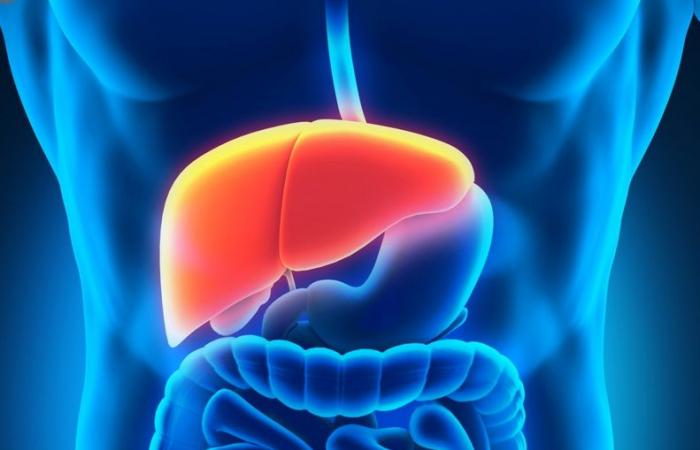In late March, the World Health Organization released new guidelines on the prevention, diagnosis, and treatment of chronic hepatitis B (HBV) infection. As someone living with HBV, I welcome the changes that could significantly reduce liver cancer deaths in Africa.
The story of Wisdom, a father and founder of one of the best private schools in his hometown in Nigeria, demonstrates the need for a new approach to treating HBV. After trying to donate blood to his sick cousin, Wisdom was shocked to learn he had HBV. But medical staff told him to go home and come back in six months because his viral load was too low to be treated according to 2015 WHO guidelines.
Wisdom never felt the need to return to the hospital, as he seemed healthy and the doctor did not seem concerned about his infection. But 13 weeks later, while working on his farm, Wisdom felt a sharp pain in the upper right part of his abdomen, nausea and nearly fainted. After weeks of tests, he was diagnosed with advanced liver cancer. Last August, just five months after his initial diagnosis, Wisdom died, leaving behind his wife, daughter and a pile of medical bills.
Liver cancer outcomes are poor in Africa. Like Wisdom, the majority of Africans are diagnosed late, leaving little time to start treatment. The median survival rate in sub-Saharan Africa (SSA), where 95% of liver cancer patients have advanced or terminal disease, is 2.5 months. In contrast, about 40% of patients in high-income countries are diagnosed early, when curative or life-prolonging interventions are still possible.
All liver infections cause inflammation of the liver. It is therefore not surprising that, according to recent cancer statistics, 70% of liver cancer cases are linked to viral infections HBV and hepatitis C. More worryingly, data shows a 25% increase in global deaths caused by liver cancer between 2010 and 2019. In 2020, 830,200 people died from liver cancer, and almost half of these cases were due to HBV.
I was diagnosed with HBV in 2004. As with Wisdom, multiple tests showed I had a low viral load, and my clinicians, using protocols developed by liver specialists in Nigeria, Europe, and the United States, did not recommend treatment. The 2015 WHO guidelines would later call for the same approach to patients like me: do a series of diagnostic tests and forgo treatment if the viral load is low. I felt powerless to make decisions about my own health.
Despite doctors’ assurances that I was healthy, I lived in constant fear of liver cancer; every day, I monitored my body for signs of progression. My anxiety only increased as I read about the disease and attended scientific meetings on the subject, especially when I learned that men with HBV in Africa are more likely to develop liver cancer, even with a low viral load. So, a few years ago, I started taking the WHO-recommended oral medications to treat HBV every day. While these medications have kept me healthy so far, I pay for them out of my own pocket—a privilege not everyone can afford.
Most people with HBV lack the scientific knowledge and financial resources to advocate for themselves. That is why the new WHO guidelines will help save lives. Under the four new options to address treatment eligibility, up to half of people with HBV will be able to receive potentially life-saving antivirals, compared with only a fifth previously.
In addition, the guidelines also identify other circumstances in which a patient may require treatment, such as to prevent transmission to family members or sexual partners and to reduce the risk of liver cancer. This means that almost all HBV patients could potentially be eligible for antivirals, in stark contrast to previous guidelines, which called for treating only patients with advanced liver disease.
The new guidelines represent a step forward in expanding treatment eligibility and allowing co-decision making between clinicians and patients, which will undoubtedly lead to more people being treated for HBV. However, improvements are possible. For example, the recommended use of HBV DNA tests for continuous surveillance does not take into account that these tests are not widely available in Africa.
The next step is for governments, particularly in sub-Saharan Africa, to train health workers and patient advocates on the new guidelines to ensure their implementation. They must also scale up testing to detect people with HBV earlier in the disease progression and treat as many cases as possible.
Read also-WHO Regional Director for Africa: Senegal is a candidate with Dr Ibrahima Socé Fall
To this end, I urge national hepatitis programs and ministries of health not to let these guidelines gather dust, but rather to act immediately to implement them, which requires intensifying efforts. tests and treatments. Rapid action is the only way to reduce liver cancer deaths in Africa and achieve the WHO goal of eliminating hepatitis B by 2030.
Danjuma Adda, former President of the World Hepatitis Alliance, is Chair of the World Hepatitis Summit 2024 Committee.
Copyright: Project Syndicate, 2024.
www.project-syndicate.org
I like this :
I like loading…






